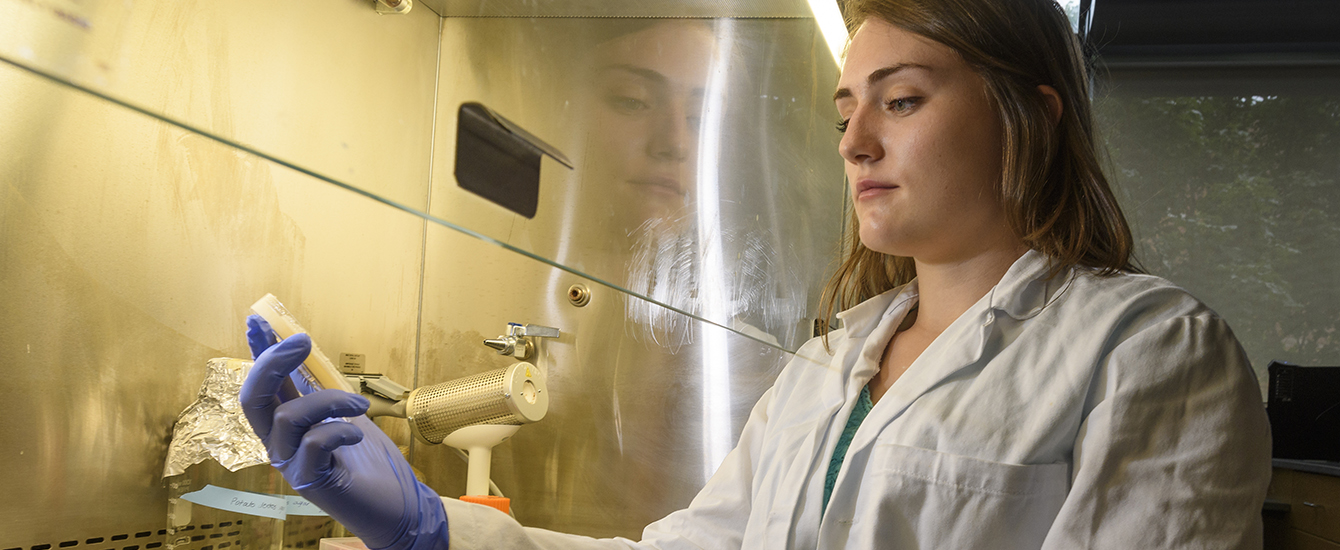The best way to learn science is to do science:
- Join research teams.
- Learn firsthand the excitement of scientific discovery and how to use state-of-the-art technologies.
- Perhaps become a co-author on publications in scientific journals.
- Faculty get to know you and can therefore write more meaningful and specific letters of recommendation.
You can participate in research in many ways:
- Research-oriented courses;
- Independent study;
- Internships at UMass Memorial Medical Center or biotechnology companies;
- Summer fellowships at Clark;
- Summer fellowships at many other universities and research
institutions around the country.
Engaging in forefront scientific research offers at least four distinct advantages:
- It allows you to pursue your intellectual curiosity;
- It provides you with laboratory research skills that may set you apart from other applicants to medical school;
- It permits you the opportunity to be a positive contributor to a team effort, and possibly be a co-author on a scientific publication (i.e., to leave a legacy of accomplishment);
- It lets your research supervisor, a respected researcher and possibly an MD, write an informed and potentially persuasive letter of recommendation.
As with anything you do, PASSION and commitment to EXCELLENCE are key to success in research.
You can choose to do research at Clark (directed study) or other nearby institutions (academic internship). Your choice of labs in which to work should be based primarily on your interest in the area of research, but will also depend on availability of space and willingness of the principal investigator (PI) to take you into his or her lab.
Here are some basic steps to follow to explore research options:
- Learn about what PIs are studying from websites
- Clark faculty have descriptions of research interests on their departmental websites.
- UMass faculty have descriptions of research interests on the UMass Medical School website.
- Contact 2-3 faculty and ask them about their research, what types of techniques they use, and if they would be willing to supervise you.
- Offer to start by working 4-8 hours per week on a strictly volunteer basis so that you can get to know the lab and they can get to know you. Ideally, do this volunteering the semester before when you want to start a directed study or academic internship. When you propose to start a directed study or academic internship, be prepared to make a one-year commitment.
- Explore summer research fellowships at Clark, UMass, and universities across the country. By doing volunteer work in a lab during the spring, you enhance your chances of being selected to work in that or another similar lab the following summer. A list of links to summer research opportunities is presented below. These links should at least help you get on track for finding a program that is right for you.
National Science Foundation (NSF) Research Experiences for Undergraduates (REU) Site Search

